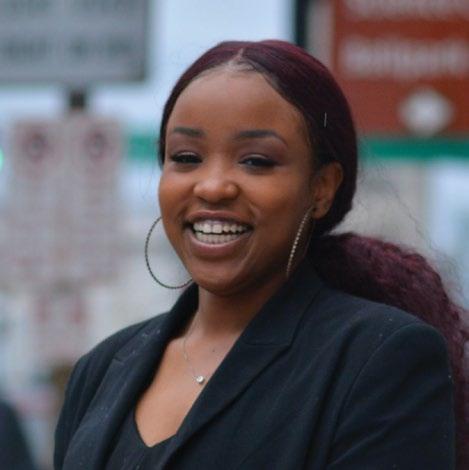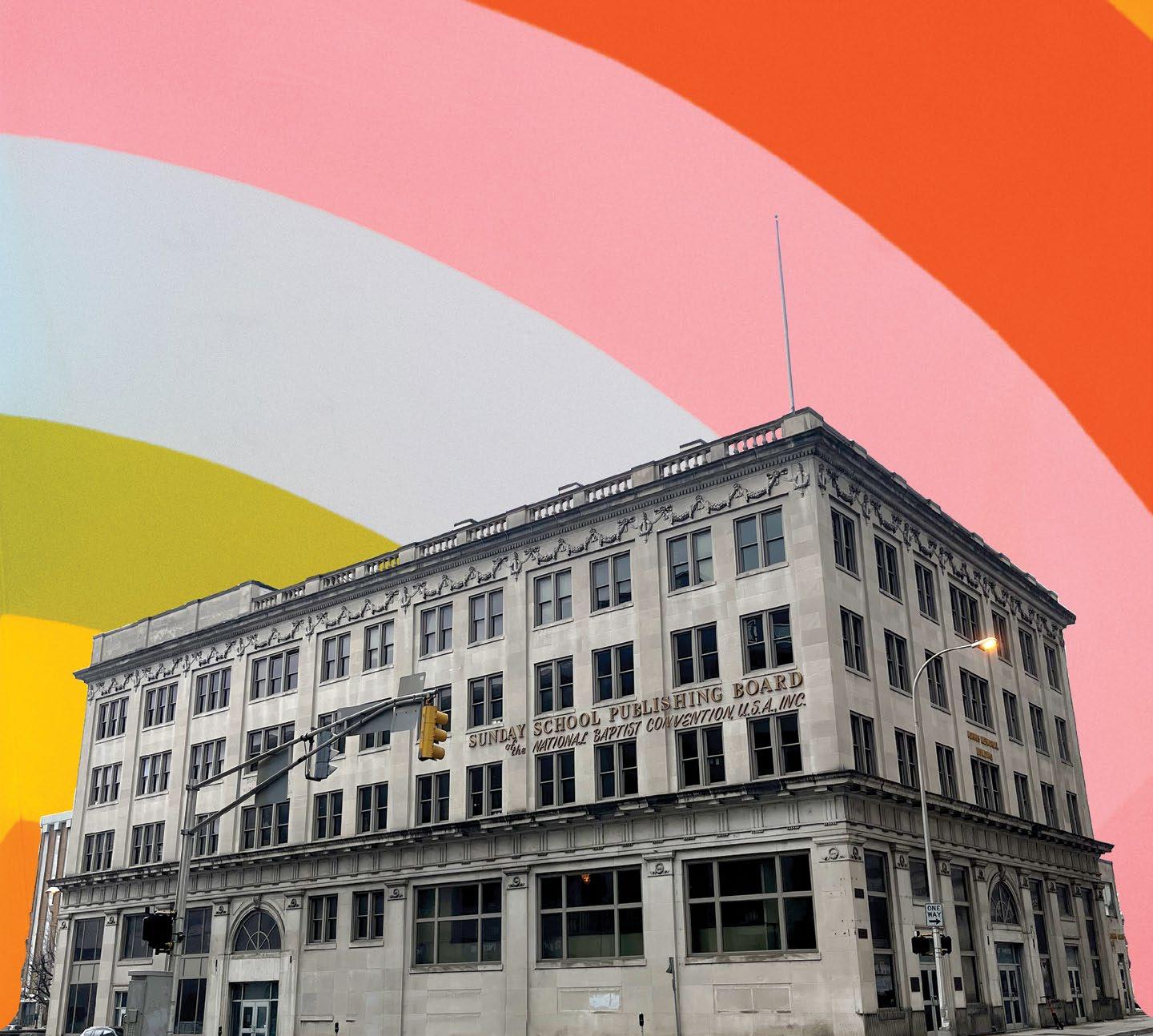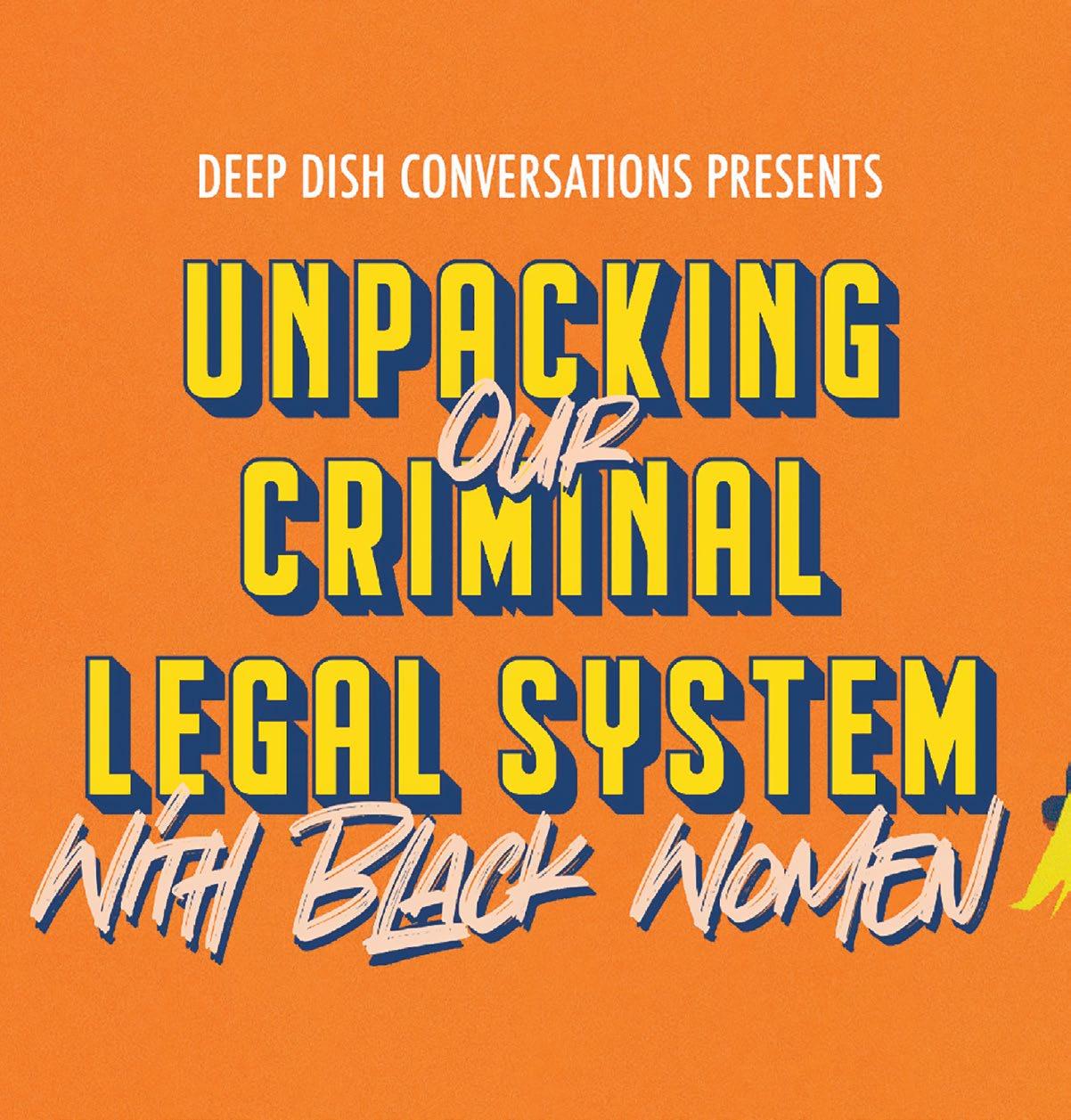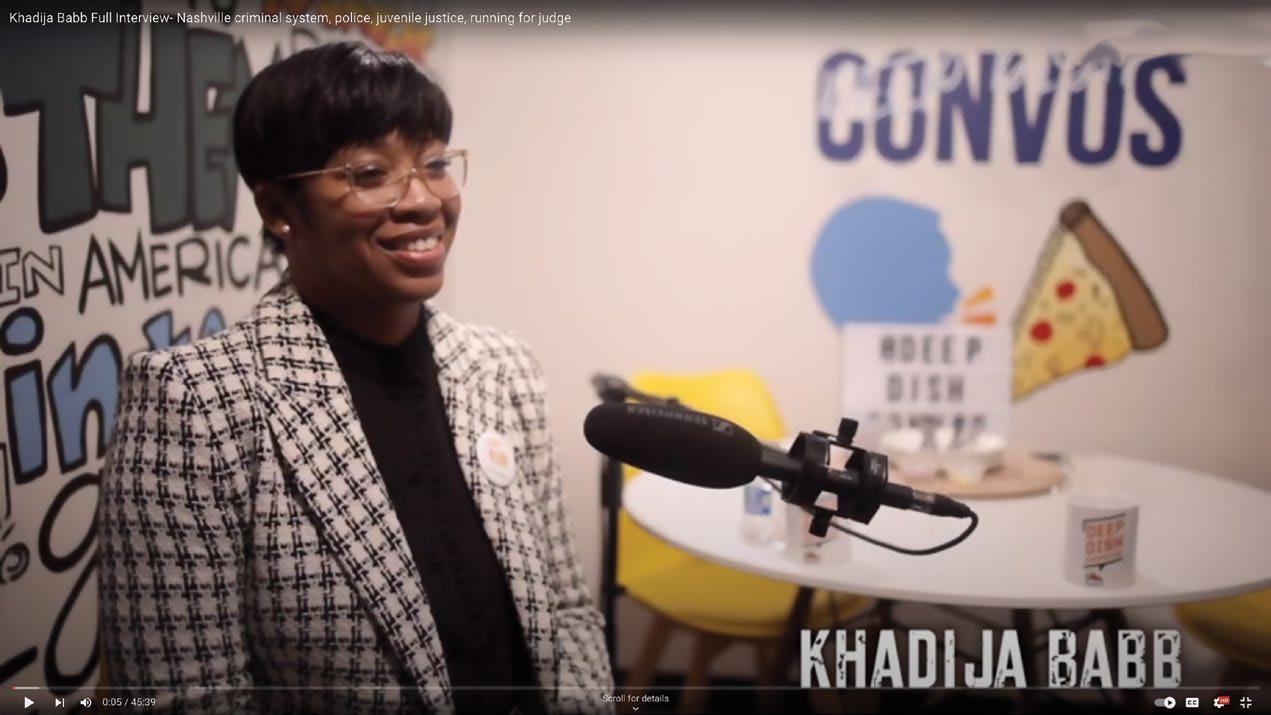
11 minute read
Black History Month
A new series Tennessee State Museum explores the history of the Black entrepreneurship
BY AMANDA HAGGARD
In a new series at the Tennessee State Museum, the museum’s curator of social history has dug into the histories of some of Tennessee’s Black-run businesses and will lead conversations on how they continue their family legacies.
Native Nashvillian Tranae Chatman helped put together the series called The Legacy of Black Entrepreneurship in Tennessee. Each Thursday at noon in February, Chatman will meet with a guest speaker from noteworthy historic Black businesses, and the community is invited to bring their own lunch and listen in.

Tranae Chatman
On Feb. 2, André Prince Jeffries of Prince’s Hot Chicken is slated to discuss the history of the relationship between Black Americans and soul food and how businesses like Prince’s exist as cultural landmarks that continue this tradition.
On Feb. 9, Ladonna Boyd Of R.H. Boyd Publishing Corporation will speak on how education exists as a gateway to freedom for Black Americans, the role of the church in connecting Black people to education, and how leaders like R.H. Boyd played a major part in this process.
On Feb. 16, Cheryl McKissack Of McKissack & McKissack will discuss the history of Black people in business, barriers they faced, and how they overcame them.

The Morris Memorial Building, pictured here, was designed by McKissack & McKissack in the 1920s for the African-American National Baptist Convention in downtown Nashville.
PHOTO BY LINDA BAILEY
On Feb. 23, Darrell Cobbins of Peace Realty will compare the ideals of Booker T. Washington and W.E.B. Du Bois and their belief that the Black middle class would play a significant role in transforming the lives of Black Americans.
Chatman says she hopes the series is a starting point and that folks will continue to learn more about Black businesses in their communities. Her most recent research focuses on the experiences of minority groups, and her job includes telling the stories of Tennesseans through the procurement, preservation and interpretation of items from Tennnesee history.
“Black Tennesseans have a long history of entrepreneurship that continues to present day and support from the community is what keeps this tradition going,” Chatman says.
The Contributor asked Chatman a few questions about gathering information for The Legacy of Black Entrepreneurship series.
Can you speak to the history of how early on Black business owners in the state (and nationwide) could only really sell products to others in Black communities?
Black entrepreneurs have existed as early as the antebellum period. Although their experiences were confounded by the experiences of slavery and racial discrimination, antebellum Black business owners were able to develop enterprises that ranged from marginal to vast in size and scope.
According to Juliet E.K. Walker, a historian and subject matter expert, Black entrepreneurs “developed enterprises in virtually every area important to the pre-Civil War business community, including merchandising, manufacturing, real estate speculation and development, the construction trades, transportation, and the extractive industries.” Most Antebellum Black entrepreneurs provided services and skill work to the communities that surrounded them. In the early 1900s (after Reconstruction and with the rise of Jim Crow laws) is when you begin to see Black businesses become more confined to only the Black community, although there are exceptions to this.
How did Black people help Black people bolster businesses early on? Are there any pieces in the series/exhibit that you think showcase this?
Post Reconstruction, Black people supported Black businesses because of their proximity to them but also because separate-but-equal doctrine (Plessy vs. Ferguson, 1896) legalized segregation of public accommodations. That is not to say that they supported each other reluctantly. In the case of businesses like Prince’s Hot Chicken Shack, the Black Nashville community has enthusiastically supported this entrepreneurial endeavor since 1945. So much so that up until recently, there was no need for advertising or branding to sustain the business’s fan base to present day. Many of these businesses received consistent support from the communities they were active in and sustained themselves by establishing great rapport.
Another example, R.H. Boyd Publishing Corporation, began in 1896 as a major source of Black Baptist literature and church furniture locally and internationally. Within the Black Baptist community, they filled a need and were received well. Word of mouth and reputation plays a major part in the support that any business is given.
There were and are a lot of barriers for Black businesses in growth: discrimination in many forms like lack of capital opportunities and more explicit racism in many industries. Historically what have been the biggest barriers for Black Tennesseans in business?
Lack of capital opportunities, in my opinion, is the biggest barrier for Black Tennesseans. Many Black entrepreneurs have great ideas that lack the financial support to sustain them long-term. As businesses grow, they require more money, and this is a tough barrier to overcome if you don’t start with capital from the beginning.
In the history of the state, were there major business milestones you wanted to make sure were noted in this series?
My main goal with this series was to highlight two types of businesses. First, the businesses that have been around for over 100 years like R.H. Boyd Publishing Corporation and McKissack and McKissack. And next, businesses that have long histories that are not often shared or talked about enough like Peace Realty and Prince’s Hot Chicken.
Was there anything that surprised you while digging into this material?
I was surprised by how many projects McKissack & McKissack has worked on throughout their 100+ years in business. Their portfolio is truly breathtaking and is evidence of why they have been in business for so long. As a family, they have worked on the National Civil Rights Museum in Memphis as well as the Martin Luther King Jr. Memorial and the Smithsonian National Museum of African American History and Culture in Washington D.C. to name a few.
Do you have a favorite piece or tidbit of information you found while putting this series together?
The entire story of Peace Realty is fascinating to me. I was first told the story of Peace Realty while talking to a woman at the Museum about her family history. Her grandfather worked as a realtor for the company. As I researched, I was surprised that I had not previously learned about Samuel Peace or the history of the Lakeview Gardens subdivision in Memphis. Lakeview Gardens was the first middle-class enclave for Black Tennesseans in Memphis in the 1960’s. Peace Realty sold over 600 single-family homes in this subdivision and earned the National Association of Homebuilders Award for best-planned subdivision of any American city the size of Memphis. The subdivision was developed as the Civil Rights Movement played out on the national stage and is evidence of Tennesseans taking initiative in their own communities to push for change.

Web Show ‘Deep Dish Conversations’ Serves Up New Live Event
Nashville judges and Cyntoia Brown-Long will discuss Black women and the criminal legal system at The Belcourt
BY AMANDA HAGGARD
Historically, Black women have been some of the least well represented on both sides of the criminal legal system in America.
A 2021 study called the Report on Diversity in the U.S. Law Firms showed that a little more than 4 percent of all partners in law firms were women of color and less than 1 percent were Black women — all while the percentage of women of color working as law firm interns was around 25 percent. And on the other side of the equation, according to The Sentencing Project, Black women are twice as likely to be arrested and incarcerated than white women.
“There has never been a more necessary time to unpack what the hell is going on in our criminal legal system,” says Jerome Moore, the creator and host of the web series Deep Dish Conversations
In his show, he sits down with community members over pizza and asks them to come in and “engage, listen and learn about the critical social, cultural and political issues” in our community and talk about how they affect everyone.
For Deep Dish Converation ’s first live iteration, Moore has invited a group of local Black women to discuss the criminal legal system and provide insight from their own experiences. He says the idea for this panel came about as he watched Ketanji Brown Jackson get confirmed as the first Black woman to serve as a justice of the United States Supreme Court — more than 230 years after the founding of the country.
“Here in Nashville, we just have Black women and women of color that have recently just been elected as judges and we have a lot of Black women doing advocacy work and often they’re not given the space to speak in the same way others have,” Moore says. “And honestly, as far as judges, the community really never hears from folks until they get to a courtroom. I wanted to invite some of the women here because I know they’re interested in changing that, in being more engaged than just waiting for the issues to show up in their courtroom.”
Recently elected judges Judge Khadija Babb, Judge I’Ashea L. Myles and Judge Robin Kimbrough-Hayes will join the live panel as well as Judge Rachel Bell, Judge Alegra Walker-Birdine and Judge Sheila Calloway. Cyntoia Brown-Long, a sex trafficking victim who was released after several years in prison after being convicted of murder at age 16, will also join the panel to discuss her experience with the criminal justice system.

“I just think when situations like [what happened to Brown-Long] occur that it allows and makes us have to think about our criminal legal system,” Moore says. “We have to be able to adapt as well and pivot in certain ways. Everything is not black and white. There’s not a statute written for everything in our criminal legal system. I think she's a perfect example of that.”
Babb will share her unique experiences as a former criminal defense attorney, assistant district attorney and now judge and as Black women who grew up in Nashville. She says the court gains from having various experiences behind the bench.
“Sometimes folks who didn't grow up in certain circumstances, they don't understand what they're dealing with on a daily basis,” Babb says. “It's just hard for young people to believe you if you’re in juvenile court if they know you have no idea what their life is like, for example. And even if they aren’t in my courtroom, it’s important they understand by seeing me that somebody out here is successful who has had your same struggles, and you can do it too. It's possible. It's not impossible.”
Babb also hopes to learn more through community engagement and to utilize the time to encourage community members to ask more questions about how things are run — to be more curious about why the system is the way that it is.
“Ask questions to your elected officials,” she says. “Ask questions to the judges. Ask why they aren't involved in more community events panels? Why don't you do this? Or why do you think things are the way they are? I think just constantly keeping people, especially the people that we elect, accountable. … There are so many lives that are gonna be affected in the span of eight years, so understanding folks’ philosophies and being engaged in the process not just during an election is just needed. And from citizens, just learning more about the system outside of when you hear about an egregious crime or a crime that's on TV. The underlying issues can be understood if we’re always looking at the issues, always trying to understand.”
Moore says he’s drawn to bringing people together who may traditionally be placed in adversarial positions and asking them to sit down for a civil conversation. He wants to explore areas where they may have similarities or differences in opinion big and small.
“The goal is to mobilize this in different communities throughout the world and, you know, just talk to people and explore community and eat a lot of pizza while we’re doing it,” Moore says.
The live show is slated for Feb. 16 at The Belcourt. Tickets are $20 per person.







